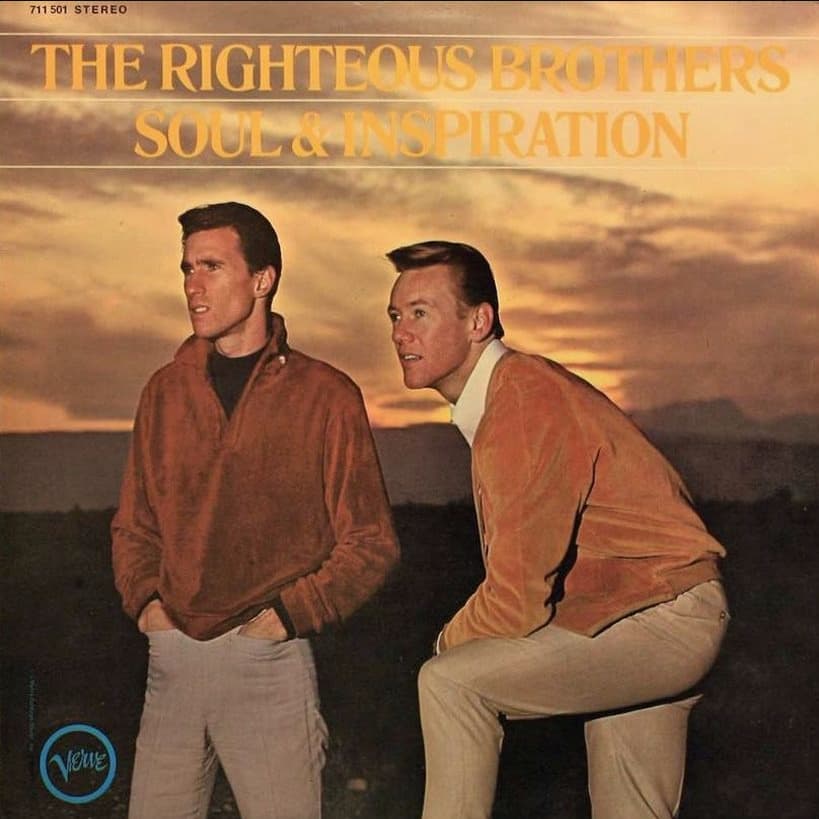
The Righteous Brothers – “(You’re My) Soul and Inspiration”: A Soulful Anthem of Devotion and Passion
The Righteous Brothers’ “(You’re My) Soul and Inspiration” is a timeless ballad that captures the power of love as both a source of strength and an emotional anchor. Released in 1966, the song was their first major hit following their split from producer Phil Spector. Written by Barry Mann and Cynthia Weil, the same songwriting duo behind their earlier hit “You’ve Lost That Lovin’ Feelin’”, the song became a smash success, reaching No. 1 on the Billboard Hot 100 and solidifying The Righteous Brothers’ status as pioneers of blue-eyed soul.
The song opens with a dramatic orchestral introduction, immediately setting an emotional and grand tone. The lush strings, piano, and subtle percussion create a rich, cinematic atmosphere that draws the listener into the heartfelt narrative. The arrangement builds gradually, mirroring the intensity of the lyrics and vocals, creating a sound that is both intimate and majestic.
Lyrically, “(You’re My) Soul and Inspiration” is a declaration of unwavering love and dependence. The narrator describes how their partner gives meaning and purpose to their life, with lines like “Without your love, what would I be?” and “You’re my reason for living.” These words capture the depth of the narrator’s devotion, making the song an anthem for anyone who has found their emotional foundation in a loved one.
The chorus, “You’re my soul and my heart’s inspiration,” is both powerful and tender, encapsulating the song’s central message of love as a life-sustaining force. The repetition of the title phrase reinforces its significance, creating a refrain that is as memorable as it is moving. The soaring melody, combined with the emotive delivery, ensures that the chorus resonates deeply with listeners.
Bill Medley’s lead vocals are the emotional core of the song, delivering a performance that is both soulful and raw. His deep, resonant voice conveys a sense of vulnerability and sincerity, making the lyrics feel deeply personal. As the song progresses, Medley’s voice rises with the orchestration, reaching a climactic intensity that underscores the passion and urgency of the narrative.
Bobby Hatfield’s harmonies add a layer of richness and depth to the track, enhancing the emotional impact of Medley’s lead vocals. The interplay between the two voices creates a dynamic, textured sound that is a hallmark of The Righteous Brothers’ style. Their ability to blend their voices seamlessly, while still allowing each to shine, is a testament to their vocal chemistry and artistry.
The production, overseen by Bill Medley, reflects a post-Spector approach to orchestration, emphasizing clarity and balance while retaining the grandiose quality of the Wall of Sound. The use of strings, brass, and percussion is carefully layered, giving the track a full-bodied sound that complements the intensity of the vocals without overshadowing them.
Since its release, “(You’re My) Soul and Inspiration” has been celebrated as one of The Righteous Brothers’ finest recordings. Its themes of love, devotion, and emotional reliance resonate universally, ensuring its place as a staple of romantic ballads. The song’s chart-topping success and enduring popularity have made it a favorite for weddings, anniversaries, and other heartfelt occasions.
“(You’re My) Soul and Inspiration” also marked a significant moment in The Righteous Brothers’ career, proving that they could achieve massive success outside of their collaboration with Phil Spector. The song’s critical and commercial triumph solidified their place in music history as one of the most influential duos in pop and soul.
In the decades since its release, the song has remained a cultural touchstone, often featured in films, television shows, and commercials that celebrate love’s enduring power. Its ability to evoke deep emotion and connect with listeners ensures its timeless appeal.
In the end, “(You’re My) Soul and Inspiration” is more than a love song—it’s a testament to the transformative power of love and the strength it provides. The Righteous Brothers’ passionate performance, combined with the masterful songwriting of Barry Mann and Cynthia Weil, creates a track that continues to inspire and move audiences. For fans of classic soul and those who believe in the beauty of love, this song remains an unforgettable masterpiece.